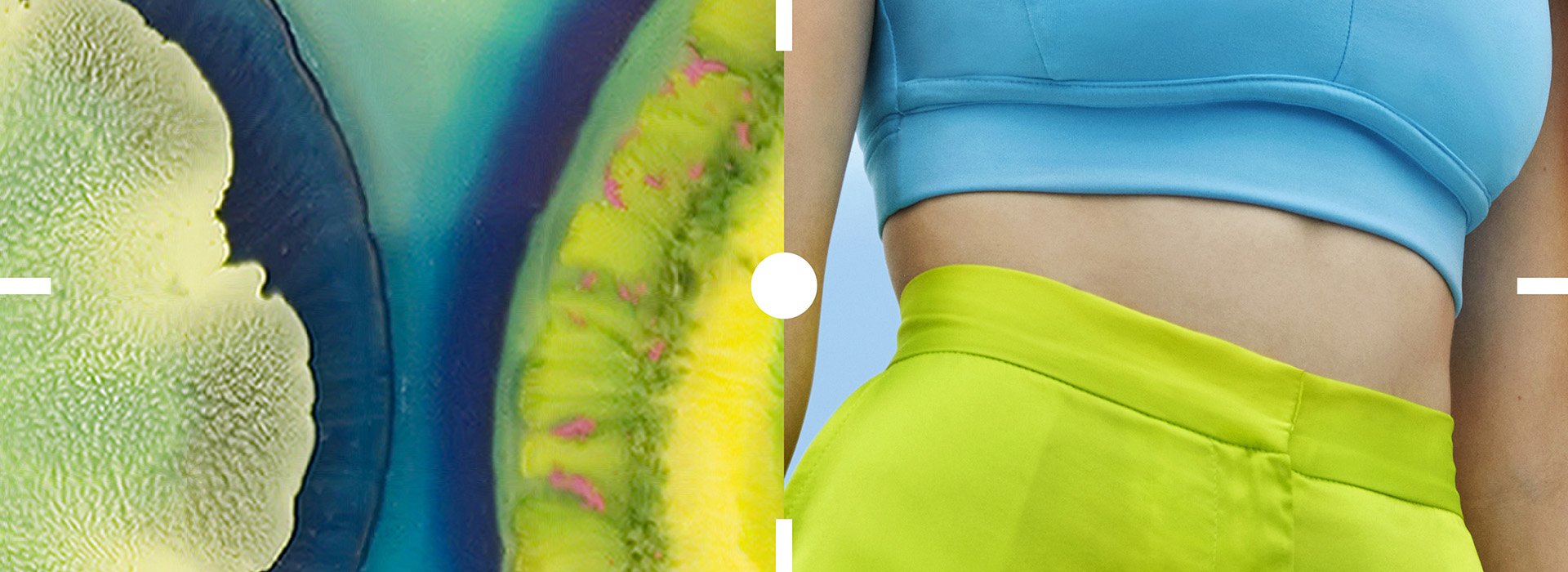
What is a microbiome?
You may not know it, but our bodies play host to a huge number of micro-organisms. Ranging from fungi and bacteria to microbes and viruses, collectively they are known as the human microbiota, and the microbiome is all the genes your microbiota contains. Still with us?! Don’t worry, colloquially, the microbiota and microbiome are often referred to as the same thing. So, all you need to really understand is that the microbiome is the collective term for all the micro-organisms in your body.
What you do need to know is that 95% of them, live in our gastrointestinal tract, i.e. our gut.
Now, you may think that microbes are dangerous and, in some senses you’d be right. Some microbes, called pathogens, definitely are and can make you sick but others are very useful indeed and should be cultivated for good gut health. For example, some microbes are responsible for programming the immune system, providing nutrients for our cells and even preventing harmful bacteria and viruses from spreading.
So, where do microbes come from?
Research suggests that when babies are born, the actual process of birth has a huge role to play in kick-starting the microbiome. However, over the years, our microbiomes change a lot due to several factors such as our environment, long-term diet, stress and the drugs we take, such as antibiotics. So the microbiome we’re born with is not the one we end up with in later life.
In recent years, the specific microbiome in the gut, have received a lot of attention but did you know that you also have microbiomes in different parts of your body? The gut, skin and even vagina all have their own microbiome made of very distinct communities of microbes that do very different things. For example, recent studies suggest that bacteria commonly found on the skin can protect against certain skin cancers! Fascinating.
Now, for the most important bit, what can you do to support the good microbes in your microbiome? This is where prebiotics and probiotics come in. PREbiotics are the foods microbes need in order to thrive and are found in things such as fibre and fermented foods. PRObiotics are the microbes themselves which you can add to your gut to boost the number of good bacteria present. If you’d like to find out more about how to boost your gut’s microbiome, check out our MicrobiHome blog for more expert advice.
The Gut Microbiome
Most of the microbes in your gut are found in a specific part of the large intestine called the cecum. There are up to 1,000 species of bacteria in the gut microbiome, with each of them playing a different role in your body. For the most part, these forms of bacteria are extremely positive for your overall health, but some (pathogens) can cause disease if they start to outnumber the good bacteria.
Why is gut microbiome important?
Research has shown that the gut microbiome is responsible for controlling the immune system and the nervous system, which controls brain function. So, it’s incredibly important to look after your gut microbiome as it affects key bodily functions and influences your overall health.
So, how is the gut microbiome formed?
Research suggests that when babies are born, the actual process of birth has a huge role to play in kick-starting the gut microbiome. However, as we age, it will change and diversify, meaning it starts to contain lots of different types of microbes. Naturally, lots of the foods and drugs we consume will have an impact on your gut microbiome. For example, when babies drink breast milk, good bacteria found in the milk begins to grow inside the intestines called Bifidobacterium. They then go onto digest the healthy sugars in breast milk that are important for growth.
So, what can you do to ensure your gut microbiome stays healthy?
So, what can you do to ensure your gut microbiome stays healthy? Unsurprisingly, what you consume plays a big role in maintaining a balance of good bacteria in the gut. For some people, when that balance is upset, they may start experience stomach cramps, bloating, constipation, and diarrhoea. In some cases, adjusting your diet to include more foods that contain lots of gut-friendly bacteria such as fibre and fermented foods, can help but for most people, taking a probiotic is always a good idea. If you’d like to find out more about how to boost your gut’s microbiome, check out our blog for more expert advice.

Learn How to Improve our Microbiome

5 surprising Ways to Improve your Gut Microbiome
We take you through our top 5 tips on how to improve gut health in our latest blog.

Do I need a good gut microbiome?
Good gut health impacts your weight, heart health and brain health. Learn more here.
Shop Alflorex
Gut and Brain Supplements









